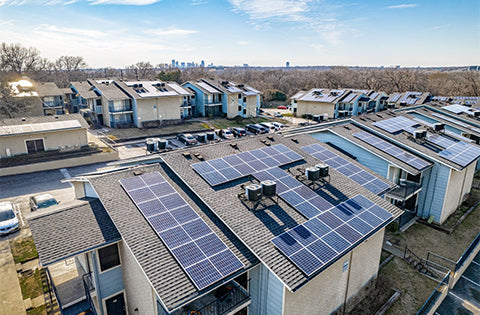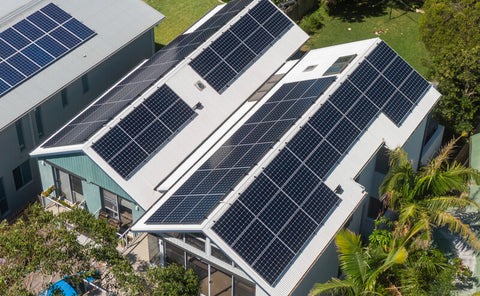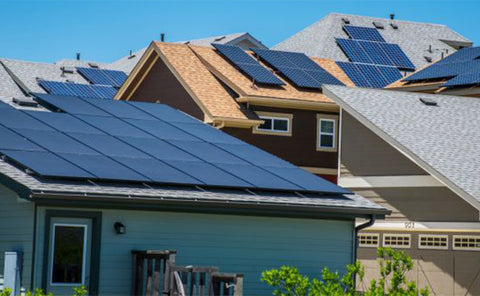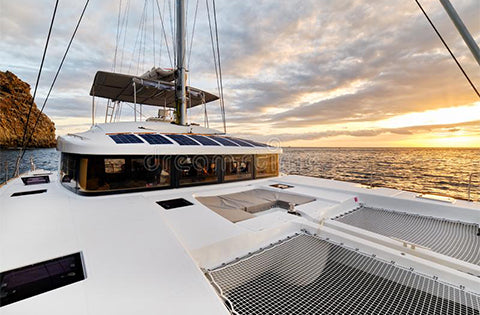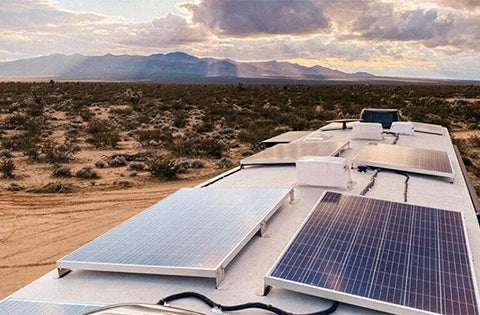Many people may heard about backup power when switching to solar. But have you ever understand what the backup power is and how it functions in a solar system. Today, in this article, we will guide you to know something about backup power.
What is backup power?
If you’re like most people living in a traditional home or apartment, you’ll draw your power from the electrical grid that your local power company maintains and operates. This is your primary source of energy.
But what happens when electrical systems aren’t working? Perhaps a wire has shorted out or you’ve overloaded the system. That’s where backup power comes in. Backup power generally refers to various electrical systems that keep the lights on when your primary power fails. They also power appliances and devices you might need during an outage. The energy sources you could use include battery backups, solar power, wind power, or portable or fixed generators.
How does backup power work?
Depending on the type of system you’re using, backup power can work in several ways. The most basic systems may require you to set up a generator or at least turn one on. Meanwhile, high-end and advanced backup power may kick on automatically, ensuring an uninterrupted power flow. Some backup power systems require you to add fuel periodically or have a set amount of stored battery power. Advanced systems can even produce their own energy using wind or solar.
Who uses backup power?
Backup power isn’t just for one type of person, business, or institution. A large and diverse group of power users need reliable backups to keep the juice flowing, even when their regular power systems are down. At the top of the list are the businesses or other organizations that simply can’t go without power, even briefly. These include telecom service providers who keep local communications running on electricity. There are also hospitals that rely on a steady supply of power to support everything from patient food preparation to emergency surgeries to life support machines.
Any critical system should have backup power like electrical substations or factories, where power loss could seriously impact production or damage expensive machinery. Think also about organizations like the military, police, and fire departments. Without backup power, the people these groups serve would essentially be helpless until the electricity came back.
Recreational users also need backup power on occasion. These include RVers, especially those who live in their rigs full-time, and liveaboard boaters, who also call their boats home. While power is generally not as urgent for RVers and boaters as for the previously mentioned groups, these folks still count on electricity. It powers their lights, helps them navigate, or even powers portable medical technology they might rely on.
There’s also a large and growing demand for backup power for residential use. While the needs often aren’t as dire here, it can eliminate certain frustrations and expenses. Those who repeatedly deal with issues like spoiled food, inability to work, or potentially health-jeopardizing heat or cold appreciate the emergency power. Plus, with more of our leisure time spent with electronics, unreliable power can ruin a relaxing evening!
Why is backup power important?
Backup power is a crucial resource for many reasons–from your comfort and convenience to your health.
Uninterrupted power supply
While not every backup power system offers this benefit, many provide seamless power. It immediately kicks in if your central power system fails. This means you won’t be stuck in the dark or lose access to essential appliances or systems while you set up a generator. For medical devices, this can be a matter of life and death. It also prevents minor annoyances like resetting digital clocks or rebooting your internet routers.
Run critical appliances
Many can live without most of their electronics, but losing crucial appliances can be uncomfortable and frustrating at best and dangerous at worst. With a backup power system, you can keep your refrigerator and freezer running. No more unpleasant food spoilage and expensive costs of restocking it. In the winter, your furnace will keep you warm and fans and air conditioning will keep you cool in the summer. Those who rely on a water pump won’t worry about losing access to their well water either. Sump pumps will continue to function and help prevent indoor floods.
Stay connected
Staying connected might mean scrolling social media while you wait for the power to return. Or being able to communicate with friends and relatives or call for help. In the best of situations, you can go about your normal life, making phone calls and browsing the internet whenever. In the worst, you can monitor severe weather or other events and keep in contact with loved ones.
Is it worth having a backup power system?
A backup power system is a valuable tool, no matter who you are or what your power needs entail. Whether you want a whole-house, solar-powered battery backup system or a modest portable generator, you can find a system that works for you. Despite the preparation and cost, it’ll pay you back many times over while your neighbors remain in the dark!
To learn more about backup power system, please follow SOLARPARTS official website:
Twitter: Solarparts Instagram: Solarparts
Tumblr: Solarparts Pinterest: Solarparts
Facebook: Shenzhen Solarparts Inc
Email address: Philip@isolarparts.com
Homepage: www.isolarparts.com
